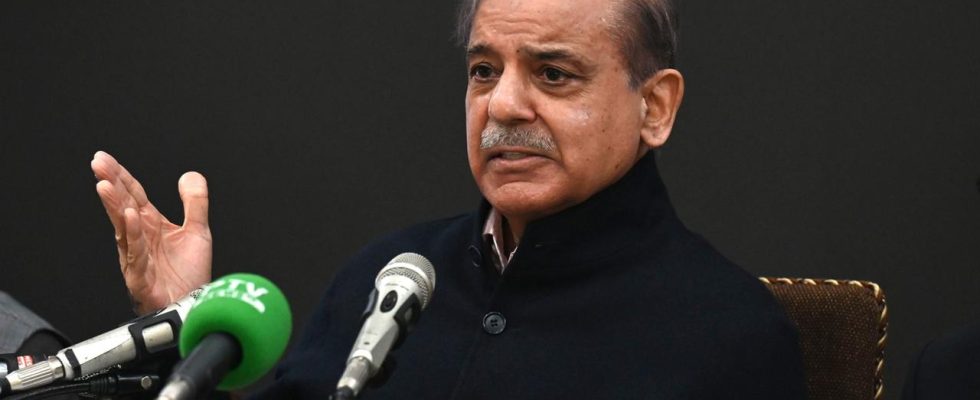Almost two weeks after the election in Pakistan, the country is apparently about to form a government: the People’s Party has signed a coalition agreement with the Muslim League – with former Prime Minister Sharif at the helm.
In Pakistan, a government is apparently forming around former Prime Minister Shehbaz Sharif. After ten days of intensive negotiations, Sharif’s military-backed conservative Muslim League-Nawaz (PML-N) party and the Pakistan People’s Party (PPP) announced late on Tuesday evening that the negotiations that had been going on for days, in which several small parties were also involved, had been concluded.
Sharif should lead coalition
The two parties wanted to form a government as quickly as possible, said former Foreign Minister Bilawal Bhutto Zardari, who entered the race as the PPP’s top candidate. He confirmed during a press conference with Shehbaz Sharif that the former Muslim League leader would lead the coalition and become the new Prime Minister of Pakistan. The alliance is proposing his father Asif Ali Zardari as president. Zardari is the widower of former Prime Minister Benazir Bhutto. The couple’s son, Bilawal Bhutto Zardari, is the leader of the PPP. Zardari said at a joint press conference with Sharif that the filling of the ministerial posts had been decided and would be announced in the coming days.
According to Pakistan’s constitution, a parliamentary session must be convened by February 29 to vote on a new prime minister. In Pakistan, the head of government is elected by the National Assembly for five years with a simple majority.
The parliamentary election in Pakistan on February 8th was without a clear winner. The candidates supported by imprisoned former Prime Minister Imran Khan won the most seats. Both Khan and former Prime Minister Sharif claimed victory. Nawaz is Shehbaz Sharif’s elder brother and has proposed him as a candidate for prime minister.
The PPP and the PML-N are parties dominated by family dynasties that have dominated Pakistani politics for decades – usually as bitter rivals. In 2022, they allied to remove Khan from office with a vote of no confidence and then ruled in an unstable coalition until parliament was dissolved in August.
Choice overshadowed by allegations of manipulation
After the election, there were widespread allegations of voter fraud and manipulation of the results after the authorities switched off the nationwide mobile phone network on election day for alleged security reasons and the counting took more than 24 hours. The election campaign in Pakistan was marred by violence, the imprisonment of Khan and the obstruction of his PTI party by the military-run establishment. A few days before the election, the popular former head of government and former cricket star was sentenced to long prison terms for treason, bribery and a marriage that was declared illegal.
Since Pakistan’s independence over 75 years ago as a result of the partition of British India, there have been repeated unrest and instability in the country. The military ruled for more than half of this time. Even among civilian governments, generals were seen as the force that could determine the success or failure of the political leadership.
The country with 241 million inhabitants – about three times as many as Germany – is facing an economic crisis and record inflation.
Peter Hornung, ARD New Delhi, tagesschau, February 21, 2024 9:09 a.m

